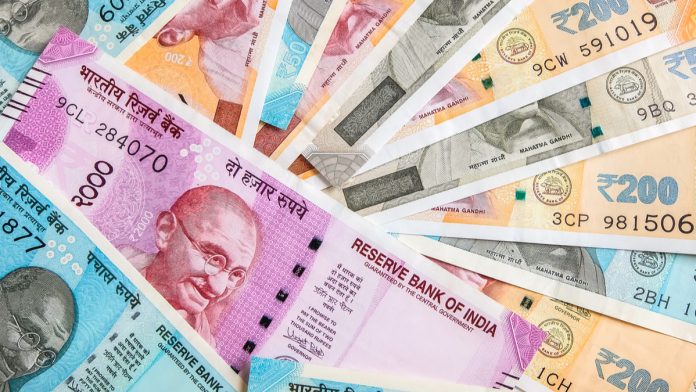- Indian Rupee (INR) set for a very mild weekly loss
- IMF could downwardly revise India’s GDP outlook
- Pound (GBP) rises post BoE
- BoE upwardly revised the UK growth outlook
The Pound Indian Rupee (GBP/INR) exchange rate rising on the last day of the week, paring losses from the previous session. The pair settled -0.39% on Thursday at 102.20. At 06:45 UTC, GBP/INR trades +0.2% at 102.42. The pair is on track to gain +0.1% across the week.
The Rupee has shown resilience this week despite the ongoing covid crisis, as it traced domestic equities higher. The Sensex has gained over 1% this week on the back of strong earnings and rising commodity stocks.
The International Monetary Fund has said that it will need to revisit its 12.5% growth forecast in the fiscal year 2021/22. The IMF will publish its forecast in the World Economic Outlook in July.
The broad expectation is that there will be a downward revision in light of the ongoing covid crisis in India. India recorded over 400,000 new cases for a second straight day on Friday.
The extent to which the India economy is hit by this latest resurgence in covid depends largely on how long the crisis continues.
As was broadly expected, the Bank of England left monetary policy unchanged. The main interest rate remains at historical lows of 0.1% and the asset purchase programme at £875 billion.
Despite not moving on policy, the central bank acknowledged the improving economic picture. The BoE now expects a speedier recovery. The BoE upwardly revised its GDP for 2021 to 7.25% and to 5.75% in 2022. Inflation is now expected to reach 2.5% this year. The rapid vaccine rollout, easing of lockdown restrictions and the extension of the furlough scheme from April to September have all played a part in lifting the pace of economic recovery.
Data released yesterday supported the BoE’s upbeat outlook. The service sector PMI hit an almost 8 year high of 61 in April as lockdown restrictions eased.
Despite the good news, the Pound remained under pressure versus the stronger Euro. The ongoing Brexit tensions could be dragging on demand for the Pound.





